- My friend’s death and energy crisis inspired me
- I sourced most of my materials locally
- Government should give grants to inventors to boost their research
For Emeka Nelson, an Engineer and astute inventor, life is full of ups and downs. He is a man who believes that there is an opportunity for exploitation and progression in any situation one finds oneself.
Engr. Emeka Nelson as he is popularly called is indeed a man of determination and firm character or solution finder, if you like.
Despite coming from a very humble background, Engr. Nelson, a native of Imilike-Agu community, Udenu local government area of Enugu state, the inventor is also the co-founder and Chief Engineer of Generelectric Nigeria Limited, Abuja.
In 2015, he took the country by storm by inventing hydroelectric generator. WITHIN NIGERIA caught up with him recently and had hearty chat with him where he x-rayed what he has been up to lately.
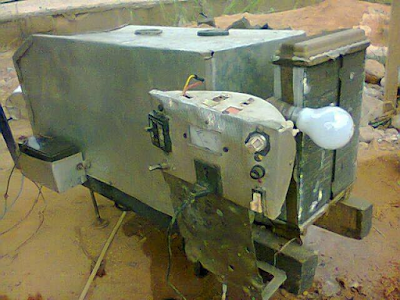
What inspired the idea of the hydroelectric generator?
When I was young, I lost my best friend. He was my best friend at that time. I lost him to generator fumes during my primary school days. It was a tragic incident which I will never forget in my entire life.
However, for this tragic incident, I started researching. I started asking myself, can’t we have an alternative to fuel-generated power? I think that was my beginning of the invention of this hydroelectric generator we have today.
Again, given the growing global energy crisis, especially after the anti-subsidy removal in January 2012, I decided to go full swing into actualizing this dream.
How long did the project take to materialize?
It is important to note here that it took me nearly two decades to actualize this dream and finish this project.
However, during this period, I researched on the project. I was researching when I was in secondary school.
During those days, I had to fabricate my own tools, build almost every part of the machine from scratch and what I could get around me. I did all those things virtually from the money I realized from my menial jobs and friends.
I made a lot of mistakes during the construction. But, I learnt a lot from those mistakes. And those mistakes ended up making me much better.
How I got the materials for the project?
It was an uphill task to source for the materials for this project.
However, I used metals, composite plastic materials and a lot of other electrical and electronic materials. In fact, most of the materials were locally sourced. Almost ninety-five per cent of my materials were locally sourced while some were sourced outside the country.
By nature, I am a very curious person; I am always ready to learn and figure out why things happen and how to take advantage of those events, turning them into something good. That is me for you and everybody.
How much did the project cost me?
I can’t really say how much the project cost, but the funding was mainly from friends and my savings. But, I can’t say I used one million naira or five hundred thousand naira to carry out the project.
How was I able to do this? Did I have any Engineering background?
There is something I keep telling people. Life is not all about having a background knowledge of something. You must not have background knowledge of anything before you do it perfectly. Remember our dear Elechi Amadi who studied Physics and Mathematics but became an internationally renowned novelist. To answer your question, I didn’t have an engineering background. There has always been this hunger and thirst to solve problems around me. Like I have said before, this inspired my inventions.
However, I am a very curious person. I am always ready to learn and figure out why things happen and how to take advantage of those events with a view to turning them into something good. Science and technology has always been my passion and it’s like something deep down in me.
How does the generator work?
The hydroelectric generator which is called Akpaike is a portable electricity generator that does not have any form of combustion engine, but is powered by internally moving water. The water creates a mechanical energy that powers the machine and this produces electricity. The power rating is 610Watts, 220Volts, 50Hz. This is the first prototype design and I am currently working on a larger capacity design 50Hz.
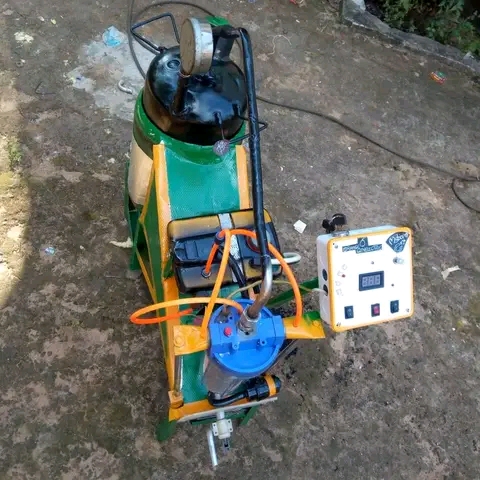
Any other inventions
I made another world class invention in environmental management, which is called Mgbanwe series. I also have robotics and drones.
The Mgbanwe C12 and Mgbanwe C13 is a waste-to-wealth machine. They are two versions of a new innovation that turns non-biodegradable wastes or solid hydrocarbon related material wastes like plastic, nylon, waterproof, etc into oil (gasoline) and paraffin which when further processed, yields petrol, kerosene, diesel and some other heavy oils.
Each machine does all these without any form of chemical additives. The residual slugs or liquid waste generated after the whole process is converted into good quality interlocking stones, pavement blocks, roofing sheets and other construction materials.
Mgbanwe C12 is the first ever prototype design and it has the capacity of producing one to three litres of gasoline from about one kilogramme of waste at a go and can produce more with continuous feeds. The C13 is a larger, more improved design of the C12 and it has the capacity of producing at least 400 litres of gasoline at a single feed.
I have been planning to further my studies. I have also received quite a couple of awards. Some of them are the Scientist and Technologist of the Year Award, JET 2011; Best Invention of the Year and overall winner NTA/ETV Science /Technology Expo 2015; Best Inventive Innovation of the Year Award 2016 (Nigerian Innovation Exchange); Best Inventor and Innovator Award 2017 (OlaL Ndibo 2017); and joint winner, Anambra Talent Show 2018 (Technovative Category).
Though I am currently working in Abuja but I am at the same time not resting in my oars in continuing my inventive quest. I have patented the invention to my company and I am equally ready to sell it to a reasonable bidder provided it will solve the problems for which they were meant to solve.
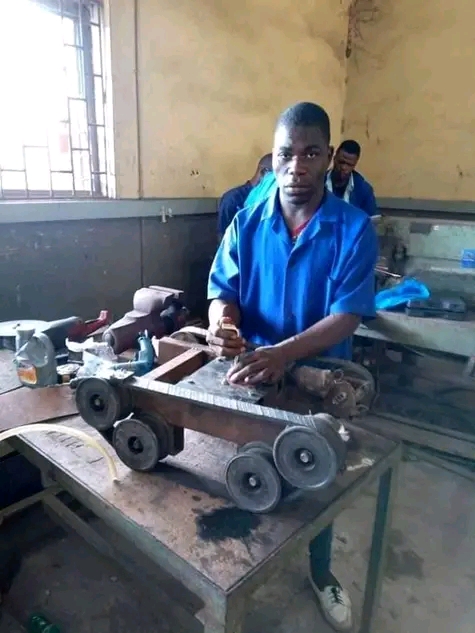
Certification of my inventions by relevant agencies in Nigeria
For some of them like the Waste to wealth machine (MGBANWE SERIES). The Nigerian Content Development Managment Board (NCDMB), under Professor Leo Osuji, Chinedu Ikejiani and others from the agency have been assisting to get the design to standard.
My challenges
My major challenges are lack of fund and also basic equipment. If I have the fund needed, I would have gone very far in going into mass production of these inventions especially the hydroelectric generator.
Place of government in supporting the inventors
Our government has a lot to do in encouraging the inventors in this country. As a matter of fact, government should provide enabling environment, establishing a standard laboratory and workshops where we can go and work on our designs. Again, there should also be provisions for research and study. Government should also make provision for grants to inventors. They should also be given scholarship?
Future of my inventions
I have a big dream and bright future. Firstly, I want to study in a good environment where I can have access to good lab/workshop and advanced tech training. Added to this, I want to build an empire of technologists, a group of solution providers. I also want my company Orange Genelectric to become the world leading giant in clean and renewable energy. Though I have National Diploma (ND) from National Metallurgical Training Institute, Onitsha, Anambra State, where I studied Instrumentation and Control System Engineering, I will also like to study till PhD level.
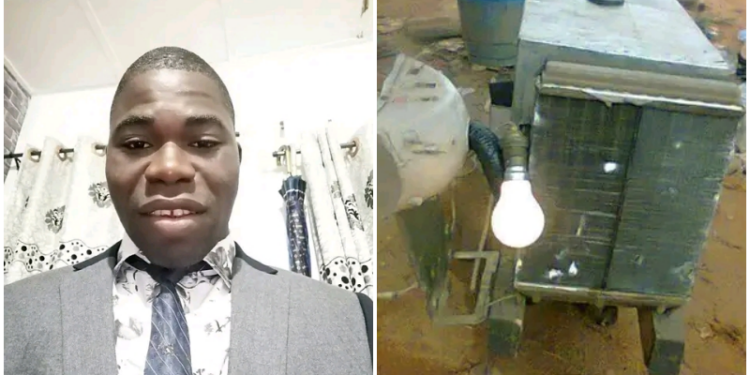

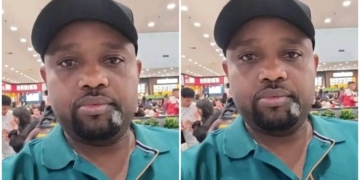

Discussion about this post